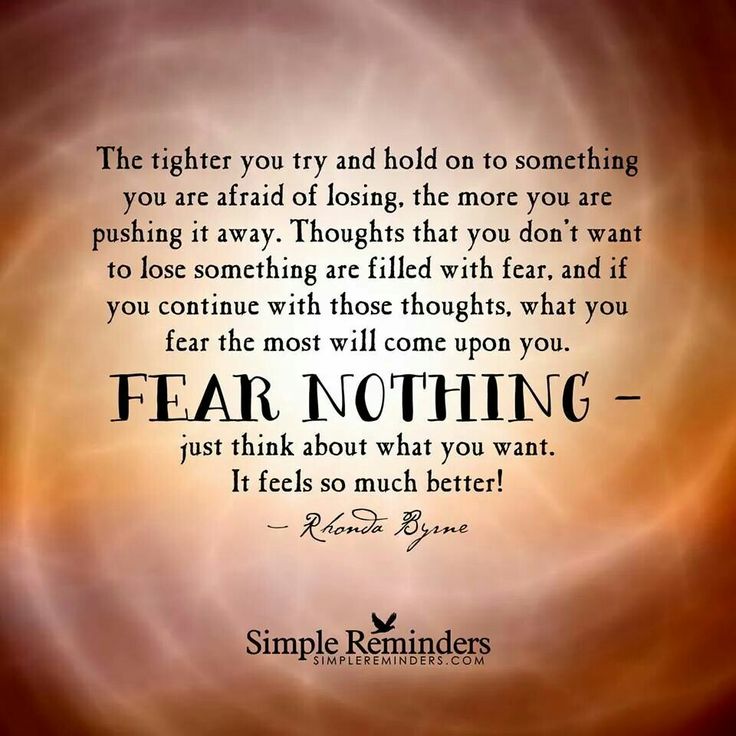

If your brain is anything like mine, you might be thinking, “But Sam, how do I KNOW this is an intrusive thought and I’m not just like, a psychopath?” Ha, friend, I know that script by heart. I wrote about my own experiences with online therapy here (in short? it was life-changing). If talking to someone face-to-face is truly a barrier that’s impeding your ability to get help, trying another therapy format could be the solution. I talk about this more in another Healthline article, which you can read here. Not every clinician knows a whole lot about OCD, either, so it might be time to seek out a better fit. If you’re really not comfortable talking to your therapist, it might also point to a need to switch therapists. You can also do this with online resources, like the articles you’d find at the OCD Center of Los Angeles.
#I never had thoughts that control me how to#
If you aren’t sure how to open up, I’d recommend reading this book and highlighting any passages that feel relevant to you. There’s an incredible book that I read, “ The Imp of the Mind,” that I honestly feel should be required reading for anyone struggling with thoughts like these. You can always ask, “I’m worried I might have OCD, and I was wondering if you could give me more information about intrusive thoughts in particular.” 5. Sometimes it can feel safer to dive into these conversations if your clinician is taking the lead. This is a way of assessing the kind of reaction you can expect from your clinician, and easing yourself into it.įor example: “Can I pose a hypothetical question? If a client of yours reported having some intrusive thoughts that they were very ashamed of, how would you handle that conversation?” 4. It’s perfectly fine to speak in hypotheticals if you’re not ready yet. You can burn it now, if you want, I can take it from here.” 3. I’ve known people who have written their intrusive thoughts down, and then handed that piece of paper to their therapist or psychiatrist.įor example: “I’m not comfortable saying this to you, but I felt you needed to know I was struggling with this, so I wrote something down for you to read.” I did this with my psychiatrist once, and when he was done reading, he shrugged and joked, “Good to know. “I know this sounds ridiculous, but…” “I feel so terrible and ashamed about this, but…” were starters that helped me figure out what words I wanted to say. Writing a script and rehearsing it in the shower or car is how I psyched myself up the first time - while vacuuming is also a good way to do this if you don’t want to be heard. Still, if you aren’t sure how to bring it up to your clinicians, this is my tried and true advice for what will be, no doubt, the most awkward conversation of your life: 1.
#I never had thoughts that control me professional#
It’s also their job to be professional grownups who can handle anything you throw at them. They studied it in graduate school, they’ve talked about it with other clients, and more than likely, they’ve had a few bizarre thoughts themselves (after all, they’re human beings, too!). Whatever terrible, dreadful thing that keeps popping up in your brain is, in all likelihood, not going to be shocking to your clinicians. The good news? (Yes, there’s good news!) I can pretty much guarantee you that your therapist has heard it all before.

The OCD Center of Los Angeles has a crucial resource outlining all these forms of OCD and more that I’d highly recommend taking a look at.Įvery single person has disturbing thoughts, so in that way, obsessive-compulsive disorder isn’t a disorder of “difference” - it’s the degree to which these thoughts impact someone’s life.įrom the sound of it, these thoughts that you’re having are definitely impacting you, which means it’s time to reach out for professional help.

fear of having a gender identity other than the one you identify with (so if you’re cisgender, a fear of actually being transgender if you’re transgender, a fear that you might actually be cisgender).fear of having a sexual orientation other than the one you identify with (so if you’re straight, a fear of being gay if you’re gay, a fear of being straight).worrying that you’ll run over someone with a vehicle or that you did.fear of accidentally harming loved ones (burning down the house, poisoning someone, exposing them to illness) or yourself.fear of purposefully hurting loved ones (assaulting or killing them) or yourself.These often occur in people who have obsessive-compulsive disorder.


 0 kommentar(er)
0 kommentar(er)
